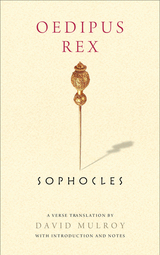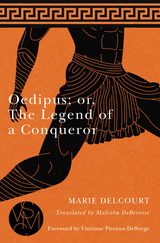
Classicist Lowell Edmunds and folklorist Alan Dundes both note that “the Oedipus tale is not likely to ever fade from view in Western civilization, [as] the tale continues to pack a critical family drama into a timeless form.” Looking beyond the story related in Sophocles’ drama—the ancient Theban myth of the son who unknowingly kills his father and marries his mother—Oedipus: A Folklore Casebook examines variations of the tale from Africa and South America to Eastern Europe and the Pacific. Taking sociological, psychological, anthropological, and structuralist perspectives, the nineteen essays reveal the complexities and multiple meanings of this centuries-old tale.
In addition to the well-known interpretations of the Oedipus myth by Sigmund Freud and James Frazer, this casebook includes insightful selections by an international group of scholars. Essays on a Serbian Oedipus legend by Friedrich Krauss and on a Gypsy version by Mirella Karpati, for example, stress the psychological stages of atonement after the Oedipus figure learns the truth about his actions. Anthropologist Melford E. Spiro investigates the myth’s appearance in Burma and the significance of the mother’s identification with the dragon (the sphinx figure). Vladimir Propp’s essay, translated into English for the first time, and Lowell Edmunds’s theoretical review discuss the relation of the Oedipus story to the larger study of folklore. The result is a comprehensive and fascinating casebook for students of folklore, classical mythology, anthropology, and sociology.

READERS
Browse our collection.
PUBLISHERS
See BiblioVault's publisher services.
STUDENT SERVICES
Files for college accessibility offices.
UChicago Accessibility Resources
home | accessibility | search | about | contact us
BiblioVault ® 2001 - 2024
The University of Chicago Press









